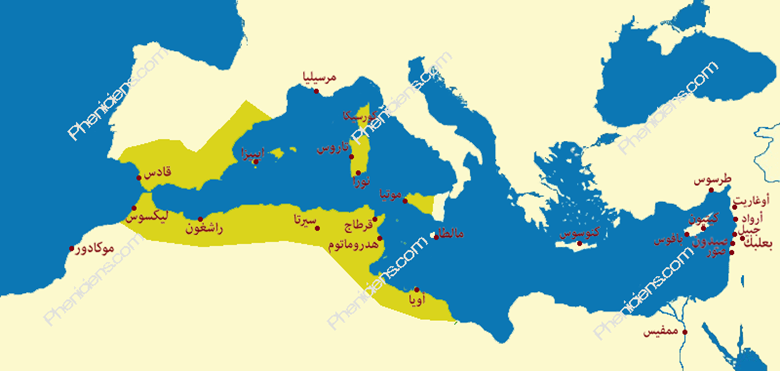?What was the fate of the Phoenician princess Didon (Alyssa or Elissa)

Professor William.Smith in A Dictionary of Greek and Roman biography and mythology. London (1848) Didion, also called Elissa, which is probably her most authentic name in Eastern traditions, and she was a Phoenician princess. We give the story as Justine told it and refer to the book to others - after the death of the Tyrian king Mutgo, where he is called Matgenos, who calls him Mithras, and others also called him Belus or Agenor, the people gave the government to his son Pygmalion, and his daughter Dido/Elisa married her uncle “Acarpa,” whom Sycaeus and Servius call in this passage “Sicacarpas.” He was the priest of the king’s office and possessed extraordinary treasures. He kept it a secret, but a report about it reached Pygmalion and led him to kill his uncle Cicarpas, who was killed at the altar. While J.Malalas, Adbon, and Wurstath to Dionys-Berekj (p. 162) represent the murder as having occurred during the voyage or during the chase.
When Dido-Alessa, who had learned in a dream of her husband's death, pretended, according to Virgil and others, that in order to forget her grief she would live in the future with her brother Pygmalion, while she secretly made all preparations to leave her country, she took possession of some of the servants whom Pygmalion had sent to assist her in changing her residence, and after Inducing some of the Tyrian nobles, who were dissatisfied with Pygmalion's rule, to join her, she sailed secretly in search of a new home, and forcibly kidnapped some girls to provide wives for the emigrants. Meanwhile, Pygmalion, who had heard of Dido/Elissa's escape, prepared to set off in pursuit of her, but was... Preventing him from his mother's pleas and the gods' threats, Servad.Aen gives a different account of Dido/Elissa’s escape, and thus she landed safely on the coast of North Africa, specifically “current Tunisia.”

Here she bought according to Euslath and Servad.Aen over King (yarbas/Hyarbas) Masili the barbarian an area of land which could be covered with the skin of an ox but Dido/Elissa ordered the skin to be cut into the finest possible lines and enclosed it over a large area which she called “Euslath”. That is, the skin of the bull, and Dido/Elissa, with the approval of Libo (just to clarify, in that period, the amazighs were called Libo, which was derived from the Luata tribe, which the Egyptians called the Copts, and then the Greeks generalized it to all the amazighs) with Libo’s agreement to pay the tribute annually by building the city of Carthage and with The new city quickly rose to the point of prosperity, King Jarbas Massili began summoning ten of the most noble Carthaginians to his court and asked for Elissa’s hand, threatening them if his request was rejected - the representatives who were afraid that upon their return, they would inform Princess Elissa of this request.

When they expressed their doubts for fear of informing her about Yarbas’s request, they told her that while anyone was willing to live among the = Amazighs {i.e. the Amazigh} and teach them about some matters (to clarify, this was a lie so that they could put an argument on it), Dido/Elissa criticized them and said: Announce Every citizen should be prepared to sacrifice everything, even life itself, if he could render service. This announcement aroused the courage of the ten deputies, and they told her what Yārbas had asked of her. Thus, the queen was arrested by the law that she herself had established. She lamented her fate, and always spoke the name of her late husband, Akyrbas. But she finally answered that she would go wherever fate might direct her. She took three months to prepare herself, and after that time had elapsed, she erected a funeral mound at the farthest end of the city and shouted many animals under the pretext of appeasing the spirit of her husband, Akirbas, before occupying her with her new wedding. So she took the sword in her hand. She climbed onto the pile and told the people that she was going to her husband as they wanted, then she stabbed herself in the chest and died....
Source: websites

